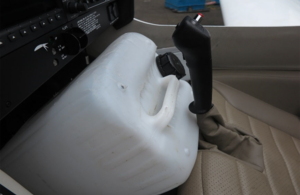Safety review to begin on topiramate
Topiramate is used for the treatment of epilepsy and migraine. It is used specifically:
- to prevent migraine headaches in adults after consideration of possible other treatments
- alone to treat seizures in adults and children older than age 6 years
- with other medicines to treat seizures in adults and children aged 2 years and above
It should only be prescribed under the supervision of a healthcare professional.
Topiramate is already known to harm the way an unborn baby grows and develops if it is used during pregnancy. Therefore, women should already be advised to use highly effective birth control while on topiramate and to avoid becoming pregnant while using this medicine.
There are other treatments for use in pregnancy that are safer for the baby such as lamotrigine and levetiracetam. Information shows that these medicines do not increase the risk of physical birth abnormalities compared with the general population.
A safety review is today being initiated into topiramate following an observational study suggesting a potential increased risk of neurodevelopmental disabilities (including autism spectrum disorder and effects on learning and development) in children exposed to topiramate during pregnancy.
Women on topiramate who are planning a pregnancy should speak to their doctor about other treatment options, but they should not stop taking topiramate without first discussing it with a healthcare professional.
Topiramate is available as tablets, a liquid oral solution, or as capsules that can be swallowed whole or sprinkled on soft food. The brand name of topiramate is Topamax.
Previous reviews of topiramate and harms in pregnancy
Following a review by the Commission on Human Medicines into the safety of antiepileptic drugs in pregnancy, including topiramate, in January 2021 we published new safety advice in Drug Safety Update with patient advice, and a Public Assessment Report.
Topiramate use in pregnancy is linked to an increased risk of birth defects and an increased risk of the baby being born of low birth weight and small for gestational age (fetal growth restriction).
Scope of this review
The Medicines and Healthcare products Regulatory Agency (MHRA) routinely undertakes reviews of the safety of medicines, seeking independent expert advice from the Commission on Human Medicines. The MHRA is responsible for the safety, efficacy and quality of medicines and so this safety review focuses on the regulatory position in the UK.
The scope of the review is:
- To evaluate information from all Marketing Authorisation Holders and available sources, including relevant stakeholders (patients, patient representatives, healthcare professionals, healthcare organisations, researchers, charity and patient organisations) on the possible harms associated with the use of topiramate during pregnancy.
- To consider whether further regulatory action is required to minimise risk and ensure awareness of the risks.
- To consider the impact of the available information considered as part of this review on the balance of benefits and risks of topiramate.
- To consider what research could be undertaken to further elucidate the long-term impact on children of exposure to topiramate during pregnancy.
- To make recommendations to the Commission on Human Medicines to improve the balance of benefits and risks for topiramate, to raise awareness of the associated risks and for further research to evaluate the risks.
Following completion of this safety review, a report of the CHM’s conclusions and recommendations will be published on this website and will also be sent to those who have indicated that they would like to receive notifications.
Timeframes for the review
| Safety review initiated | Thursday 21 July |
| Responses due from companies | September |
| Assessment circulated to CHM | October |
| CHM consideration | October |
After the CHM has considered the review, the MHRA will take forward the recommendations and update the timelines for the review where necessary.
If you would like to receive notifications in relation to this safety review please contact MHRACustomerServices@mhra.gov.uk to register your details. We will only use these details to notify you about this review.
Information on opportunities to contribute to the review will be published on this webpage as they arise and notifications will be sent to individuals who have indicated they wish to receive them.
Advice for patients
Patients are advised to not stop taking topiramate without discussing with your doctor.
If you are taking topiramate for epilepsy or migraine and are planning a pregnancy, urgently talk to your doctor – there are treatments for use in pregnancy which are safer for the baby.
For epilepsy, consult our information on epilepsy medicines and pregnancy, including that lamotrigine (brand name Lamictal) and levetiracetam (brand name Keppra) are safer for the baby during pregnancy since they do not increase the risk of physical birth abnormalities compared with the general population.
Advice for healthcare professionals
Continue to advise patients on the already known risks associated with topiramate during pregnancy. See article in the MHRA’s Drug Safety Update from July 2022 for a reminder of current advice.
Before starting topiramate in a woman of childbearing potential, fully inform the patient of the risks and the need to use highly effective contraception throughout treatment with topiramate.
Do not prescribe topiramate during pregnancy for migraine prophylaxis. Specialist advice should be sought for patients with epilepsy who are pregnant.
Reporting suspected side effects to topiramate
We continuously monitor the safety of medicines in the UK using information from various sources including the Yellow Card scheme.
If you suspect that you have experienced a side effect with use of topiramate, we encourage you to submit a report. Anyone in the UK can submit a report to the Yellow Card scheme.
If you have any questions about this review please contact us at MHRACustomerServices@mhra.gov.uk

